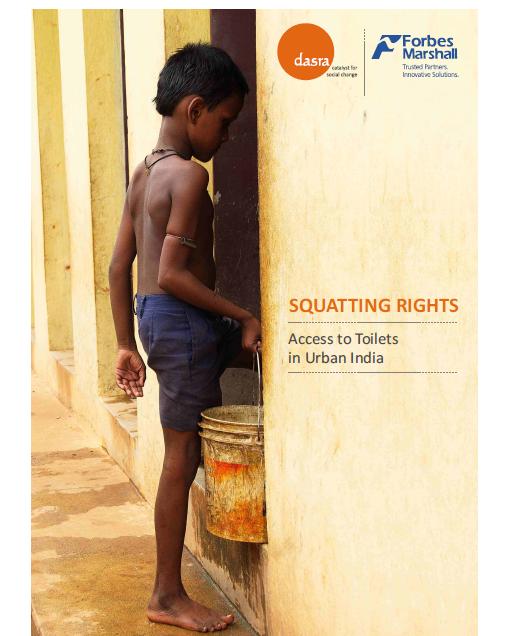/topics/equity
Equity
The traditional fisherfolk of Kerala - Part II - An article describing the economy of fishing and the role of women in the activity of fishing
Posted on 16 Oct, 2012 04:02 PMThe economy of fishing among the traditional fisherfolk of Kerala is based on three operations such as harvesting or catching of the fish, the processing of fish and the marketing of fish.

Videos - CIVIC's work on water and sanitation in slums of Bangalore, Karnataka
Posted on 12 Oct, 2012 07:13 PMSince its inception in 1992, CIVIC’s (Citizens’ Voluntary Initiative for the City) work has revolved around urban issues, especially realizing social equity in the growth of Bangalore through the 74th Constitutional Amendment Act (or the Nagarapalika Act, an Act under the Constitution of India that defines how cities/towns in India need to b
Squatting rights - Study by Dasra highlights the issue of access to toilets in urban India
Posted on 10 Oct, 2012 08:11 PM Dasra, a strategic philanthropy foundation in collaboration with Omidyar Network and
Dasra, a strategic philanthropy foundation in collaboration with Omidyar Network and
Caste discrimination in disaster situations in India - Reports by National Dalit Watch
Posted on 21 Sep, 2012 11:00 AMThe National Dalit Watch (NDW), an effort spearheaded by the National Campaign on Dalit Human Rights has prepared a number of reports on rampant caste discrimination and the urgent need for protection of human rights, particularly Dalit human rights during disaster situations.
National water framework law – An explanatory note developed by the Sub-Group of Planning Commission’s Working Group on Water Governance for the Twelfth Plan
Posted on 19 Sep, 2012 05:30 PMThis explanatory note by the Planning Commission on the national water law begins with an account of why a national water law is necessary.
"Kund - Etijyomoyer jaler etijyo" - Bengali translation of Anupam Mishra’s book by Nirupama Adhikari, about the kunds of Rajasthan
Posted on 19 Sep, 2012 03:20 PMRainwater harvesting is the new buzzword for a world wracked by climate change and increasingly limited stores of fresh water. But in rain-starved Rajasthan, communities have been harvesting water for ages.
Dr Anupam Mishra’s booklet , “Kund - Etijyomoyer jaler etijyo”, a Bengali translation of the original in Hindi, describes the ideas and principles that lie behind this legacy of conserving water in an environment bereft of this precious natural resource.

"Lapodia - Ekti drishtanto" - Bengali translation of Anupam Mishra's booklet by Nirupama Adhikary, about the successful efforts of Lapodia village in Jaipur, Rajasthan in harvesting rainwater
Posted on 19 Sep, 2012 02:57 PMCollective community efforts can help overcome the vagaries of nature and rejuvenate pastures and farms to restore prosperity, says Dr Anupam Mishra in his booklet outlining a case study of Lapodia, a village in Rajasthan.

Livelihood India Conference 2012, Access, November 29-30, 2012, New Delhi
Posted on 10 Sep, 2012 11:36 AMVenue: New Delhi
Organiser: ACCESS
"The new human revolution": Ushering universalism and a just world through sustainability
Posted on 09 Sep, 2012 03:54 PMContemporary society is in a transition and deep into the making of the first universal society for mankind, creation of a ‘one world’ where human wellbeing can no longer be separated from other human beings or from planetary welfare.
Water scarcity in Delhi – Soaring demand or mismanagement – Panel discussion organized by Toxics Link and IIC, Delhi, August 7, 2012
Posted on 31 Aug, 2012 12:28 PMThe panelists included Himanshu Thakkar (South Asia Network on Dams, Rivers and People), Manu Bhatnagar (Head, Natural Heritage Division, INTACH) and A K Bajaj (Former Chairman, Central Water Commission) while Satish, Toxics Link moderated the discussion. A short film by TERI - “Water ignites life and hope” was also shown.





